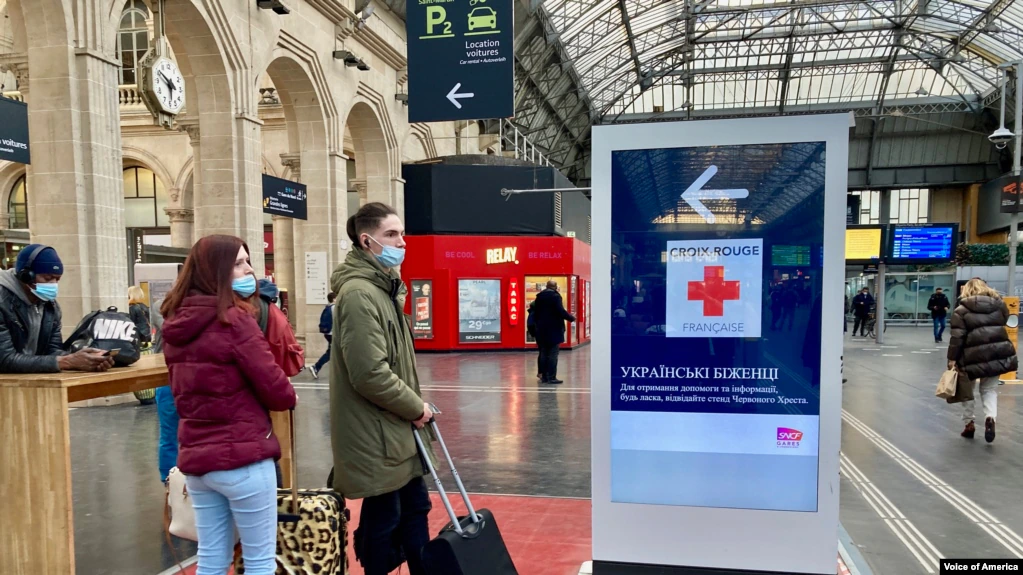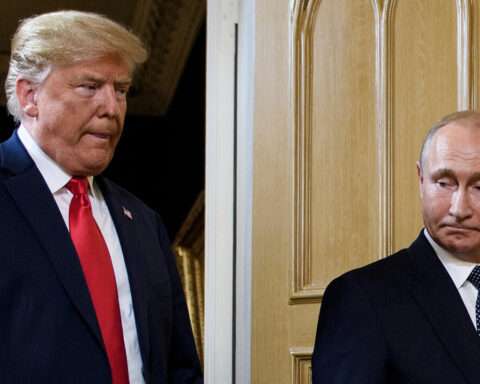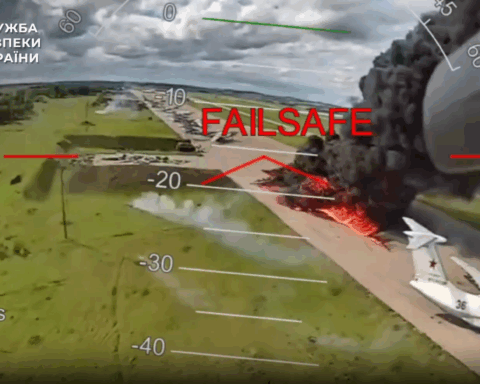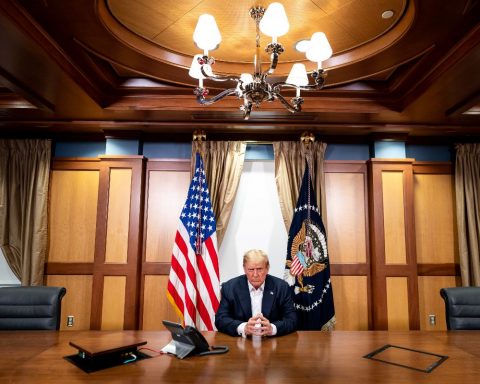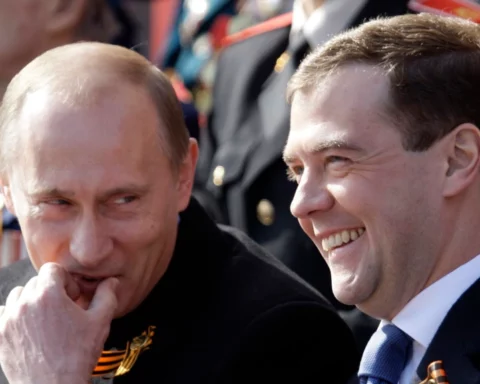PARIS — For Anastasia and Maria Starozhitska, the flight from war-torn Ukraine ends here — at a bustling train station in northeastern Paris, where pigeons bask in the afternoon sun.
“We are in winter clothes, and we come Paris and it’s all summer clothes,” Anastasia Starozhitska jokes of the unseasonably warm weather, minutes after stepping off a train from Stuttgart with her mother.
“We need to laugh,” she adds.
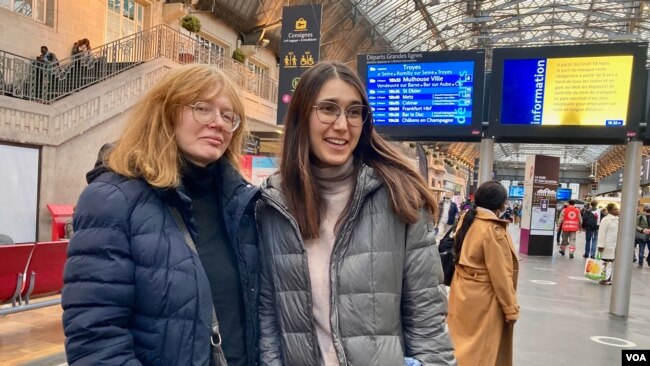
It’s been a marathon journey for the two Starozhitskas, both film directors who fled their native Kyiv two weeks ago, after Russia started bombing the city, including its main television tower. First, they went to the western city of Lviv — then onward to Poland, Germany and now France, where they will be staying with friends in Paris.
“Our friends will help us for maybe a week or two,” says mother Maria. “After that, we dream the war will be finished.”
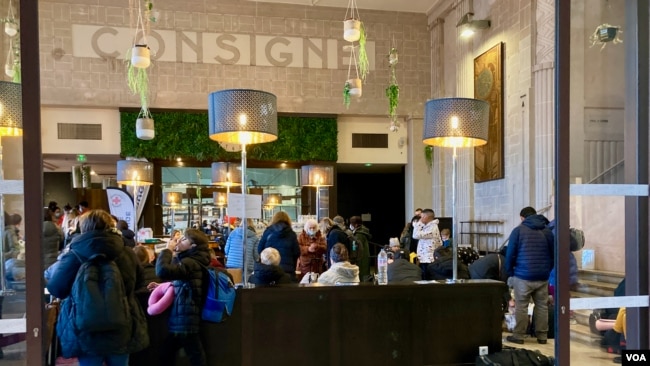
That appears increasingly unlikely, as the fighting intensifies and widens in their homeland. Already three million people have fled Ukraine, marking Europe’s biggest refugee crisis since World War II.
Many are sheltering in neighboring countries. But increasingly others, like the Starozhiskas, are pushing westward — to places like France, now sheltering some 13,000 new arrivals, and where the government says it’s ready to take in 100,000 or more.
“We will protect those who arrive on our soil,” President Emmanuel Macron said Tuesday, as he visited a Ukrainian refugee welcome center in western France.
Mobilizing support
In Paris, charities and local officials are mobilizing to respond to the influx. France’s SNCF railway, like others in Europe, provides the refugees free transport.
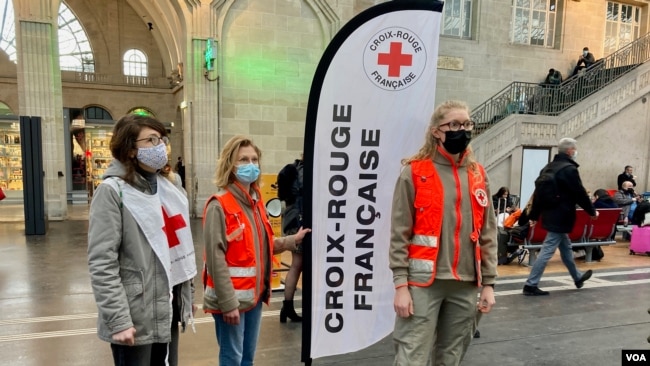
At the Gare de l’Est train station, French Red Cross workers greet the new arrivals as they step off trains and direct them to a makeshift welcome center that offers food and other assistance.
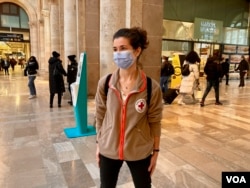
“Most of them are exhausted,” says Elodie Esteve, of the French Red Cross. “We’re here to welcome them, to tell them it’s OK, that they’re safe, and to orient them depending on what they plan to do after.”
There are sharp disparities between today’s welcome and Europe’s mixed response to the last major influx of asylum seekers. Eastern European countries that erected barriers against the Syrians, Africans and others who arrived at their doors in 2015, have largely welcomed the Ukrainians with open arms.
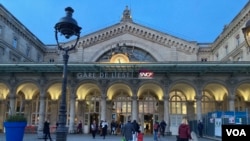
A recent IFOP poll found 80% of French — and roughly nine in 10 Germans and Poles — support having their countries host at least some of the refugees. By contrast, polls showed less than half of all French were willing to welcome the 2015 arrivals.
“I want to help, because more and more people are coming, and they’re obviously distressed and lost,” said a young Lithuanian called Viva, who turned up at Gare de l’Est to volunteer as a Russian-speaking translator. “It’s the least thing we can do.”
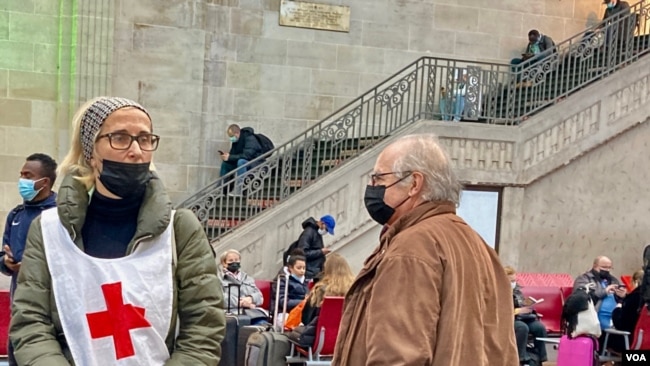
Nearby, Natalia Palubniak has donned a white smock with the Red Cross logo for the first time. A native of western Ukraine who now lives near Paris, she is also volunteering to translate for the new arrivals.
“I’ve already been helping out, giving money, but this center is my calling,” said Palubniak, who recently returned to her homeland to evacuate her elderly mother to Poland. Her brother, who lives in Chicago, has also returned home, to help in the humanitarian response.
“It’s impossible what is happening in Ukraine,” Palubniak added. “It’s so stressful.”
For the Starozhitskas, the war in Ukraine seems almost unreal.
“It’s a strange situation, just to travel around Europe because of one strange guy against the world,” said Anastasia Starozhitska, referring to Russian President Vladimir Putin.
The mother-daughter team earlier directed “The War of Chimeras,” a quasi-documentary of the 2014 conflict in Ukraine’s eastern Donbas region, aired at European and U.S. film festivals.
Anastasia Starozhitska’s former boyfriend, who featured in the movie, is again fighting for Ukraine. Her father and grandfather are sheltering in western Ukraine, since men of fighting age are restricted from leaving the country.
She is confident she too will be back — noting with a smile, that their refrigerator in Kyiv is still stocked with food.
“Yes of course,” she says of returning home. “We only need victory.”


